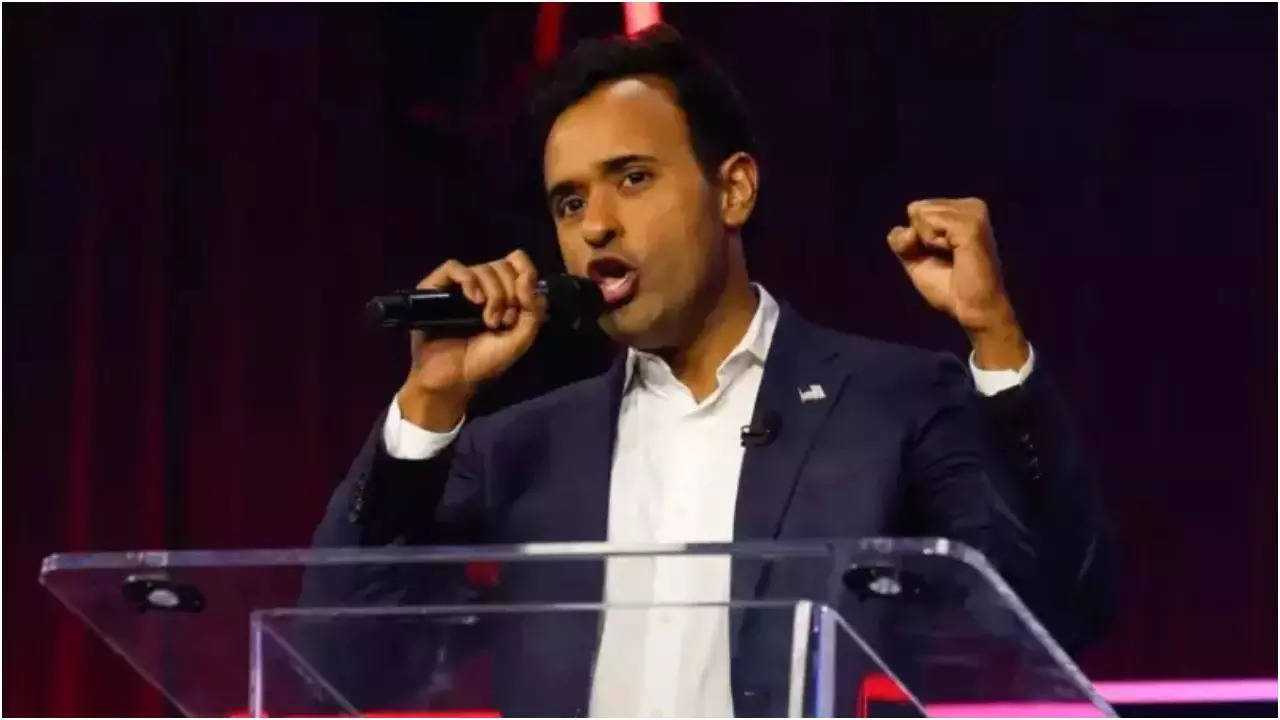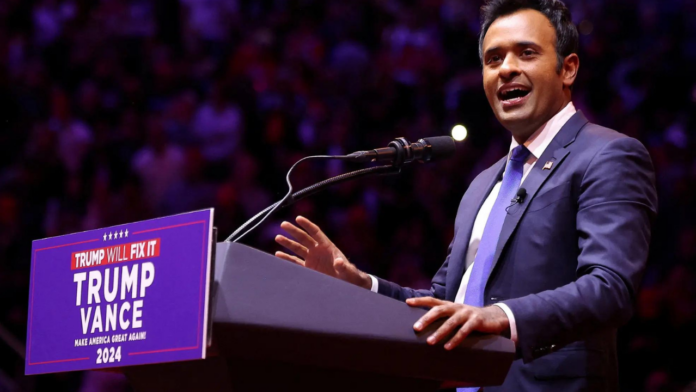Indian-origin Vivek Ramaswamy, head of the US Department of Government Efficiency, has sparked intense debate with his comments on the hiring trends in top tech firms. According to Ramaswamy, many leading companies favor “foreign-born and first-generation engineers over ‘native’ Americans,” not because of a perceived “IQ deficit” but due to cultural differences that impact work ethic and performance. His critique highlighted how cultural shifts in American society have emphasized mediocrity over excellence, ultimately affecting the quality of homegrown talent.
The Cultural Disparity in Engineering Excellence
The hiring preference for foreign-born engineers in US-based firms is a well-documented phenomenon. Ramaswamy pointed out that this trend is rooted in cultural attitudes rather than innate capabilities. He stated, “Our American culture has venerated mediocrity over excellence, celebrating the prom queen over the math Olympiad champion.”
This statement sheds light on a societal shift that prioritizes social achievements over academic rigor and intellectual pursuits. While the US remains a global leader in technological innovation, the domestic talent pool is increasingly overshadowed by foreign-born professionals who excel in technical disciplines.

Why Foreign-Born Engineers Stand Out?
Several factors contribute to the success of foreign-born engineers in the US job market:
- Cultural Focus on Education:
Many immigrant communities emphasize education and technical skills, fostering a competitive mindset from an early age. In contrast, American society often balances academic pursuits with extracurricular and social activities. - Work Ethic and Discipline:
First-generation immigrants often bring a strong work ethic driven by the desire to succeed in a new country. This determination can translate into higher productivity and dedication in the workplace. - Exposure to Competitive Environments:
Engineers from countries like India, China, and South Korea often come from highly competitive educational systems. Their rigorous training prepares them to tackle complex challenges effectively. - Global Perspective:
Many foreign-born professionals bring diverse experiences and innovative approaches that enrich the workplace, making them valuable assets to multinational firms.
Challenges in American Education and Workforce Development
Ramaswamy’s critique draws attention to systemic issues in American education and workforce development.
- Decline in STEM Prioritization: Despite numerous campaigns to promote STEM (Science, Technology, Engineering, Mathematics) education, many students in the US opt for less rigorous fields of study. This trend is partially driven by societal norms that do not celebrate technical excellence as fervently as athletic or social achievements.
- Lack of Incentives for Excellence: The cultural narrative often emphasizes participation over merit, leading to a complacency that can hinder innovation and competitiveness.
- Rising Tuition Costs: The high cost of education in the US discourages many talented individuals from pursuing advanced degrees, further narrowing the talent pipeline.
The Industry Perspective on Hiring Trends
Top tech firms, including Silicon Valley giants, have consistently relied on foreign talent to maintain their competitive edge. The H-1B visa program, which allows US companies to hire skilled foreign workers, is a testament to this reliance.
While critics argue that this practice undermines opportunities for American workers, companies often justify their hiring decisions by citing a shortage of skilled domestic talent. Ramaswamy’s comments suggest that this “shortage” is not due to a lack of potential but rather a cultural shift that deprioritizes technical excellence.
Reactions to Ramaswamy’s Comments
Ramaswamy’s bold statements have sparked varied reactions:
- Supporters view his critique as a necessary wake-up call for American society to reevaluate its values and prioritize intellectual achievements.
- Critics argue that his remarks oversimplify complex issues, such as the impact of systemic inequality and the accessibility of quality education.
Social media discussions have further amplified the debate, with many agreeing that a cultural renaissance focusing on excellence is needed to reinvigorate America’s engineering and scientific communities.
Rebuilding American Competitiveness
To address the challenges highlighted by Ramaswamy, the US must implement targeted strategies:
- Revamp Education Systems: Introduce programs that encourage analytical thinking, problem-solving, and technical expertise from an early age.
- Celebrate Intellectual Achievements: Shift cultural narratives to honor academic accomplishments alongside social and athletic milestones.
- Incentivize STEM Careers: Offer scholarships, grants, and loan forgiveness programs for students pursuing STEM degrees.
- Bridge the Gap Between Academia and Industry: Foster collaborations between universities and tech firms to create a workforce equipped with industry-relevant skills.
- Promote Diversity Within the Workforce: Encourage inclusivity by ensuring that both foreign-born and American engineers have opportunities to thrive.
A Call for Cultural Reflection
Ramaswamy’s remarks serve as a powerful reminder of the need to balance cultural values with the demands of a rapidly evolving global economy. While foreign-born engineers bring invaluable contributions to the US workforce, fostering a culture of excellence at home is essential to maintain the nation’s competitive edge.
As the debate unfolds, one thing is clear: addressing these challenges requires a collective effort from policymakers, educators, industry leaders, and society at large. Only by celebrating and nurturing homegrown talent can the US ensure its continued leadership in innovation and technology.


